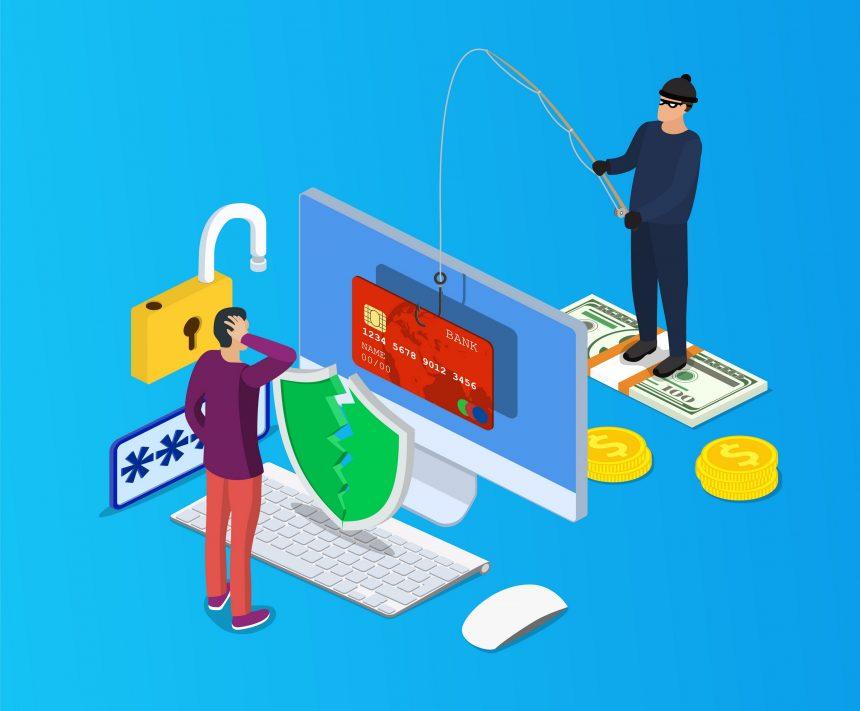In today’s interconnected world, online security is of paramount importance. Businesses and individuals rely on various software tools and platforms to manage their finances, and QuickBooks by Intuit is one such widely-used accounting software. While software updates and enhancements are common, it’s crucial to be cautious about unexpected emails claiming to offer database encryption upgrades, such as the “Intuit QuickBooks Database Encryption Upgrade.” This article will explore what this email scam is, what it aims to do, how it spreads, and how to avoid falling victim to it.
What is Intuit QuickBooks Database Encryption Upgrade?
The “Intuit QuickBooks Database Encryption Upgrade” is not an actual upgrade or legitimate communication from Intuit, the reputable American business software company. Rather, it is a deceptive phishing scam designed to trick recipients into providing their personal information, specifically their email addresses and passwords.
What Does QuickBooks Database Encryption Upgrade Claim to Do?
In this phishing email, the sender impersonates Intuit and claims that they have enhanced the database encryption for QuickBooks to improve security for online payments. The email urges recipients to download an attachment that supposedly safeguards their QuickBooks account. The message promises that users will receive timely notifications of any account activity to ensure its safety.
The email is designed to create a sense of urgency and fear, as it plays on the user’s concerns about the security of their financial information. It includes a security logo and emphasizes the importance of checking links for “intuit.com/” in the address. Recipients are instructed not to reply to the email and are directed to a “security.intuit.com/phishing” FAQ site for more information.
How Does It Spreads?
Phishing scams like the “Intuit QuickBooks Database Encryption Upgrade” typically spread through email. These emails are crafted to look convincing and often contain attachments or links that seem legitimate at first glance. In this case, the email includes an attachment named “QuickBook_Security_Update.html” or something similar.
The attachment serves as a malicious gateway. When recipients open the attachment, they are directed to a deceptive web page designed to mimic a login portal for QuickBooks. It prompts users to enter their Outlook email credentials, including their email address and password. However, the information entered is not used to upgrade database encryption but is collected by the scammers for unauthorized purposes.
Avoiding the Scam
Protecting yourself from phishing scams like the “Intuit QuickBooks Database Encryption Upgrade” is crucial. Here are some essential steps to avoid falling victim to such scams:
Verify the Sender
Always verify the sender’s email address and check for any suspicious or unusual email addresses. Legitimate companies like Intuit will have official domain names.
Beware of Urgency
Phishing emails often create a sense of urgency to prompt quick actions. Be cautious if you’re pressured to act immediately.
Double-Check Links
Before clicking on any links, hover your cursor over them to see where they lead. Verify that the URL matches the official website of the company.
Do Not Share Personal Information
Never share sensitive personal information, such as email credentials, in response to unsolicited emails.
Enable Two-Factor Authentication (2FA)
Enabling 2FA adds an extra layer of security to your accounts, making it more difficult for scammers to gain unauthorized access.
Educate Yourself
Stay informed about common phishing tactics and be vigilant when it comes to suspicious emails.
The “Intuit QuickBooks Database Encryption Upgrade” email is just one example of the many phishing scams that cybercriminals employ to gain unauthorized access to personal and financial information. Recognizing the signs of phishing and taking precautionary measures is crucial to protect yourself and your sensitive data from falling into the wrong hands. Always be cautious, verify the authenticity of emails, and never share personal information in response to unsolicited requests. By doing so, you can safeguard your online security and financial well-being.





